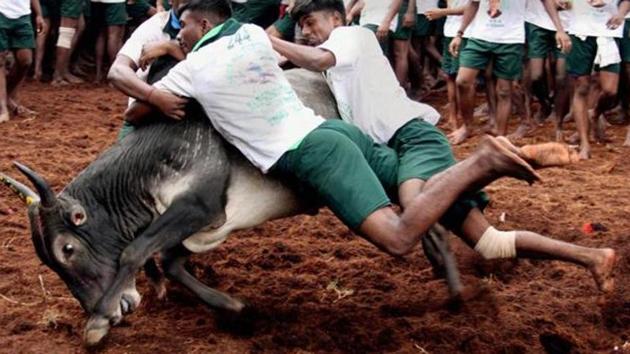‘If Jallikattu is cruel, is milk farming any better’
It may be overdone, but how can one not tread upon the Jallikattu debate? In the interest of transparency, let me share I am vegan.
It may be overdone, but how can one not tread upon the Jallikattu debate? In the interest of transparency, let me share I am vegan.

Frankly, I find it really cruel to take away milk from a child (or calf) for whom it was produced. And I find it equally cruel to inject cows with oxytocin or create hybrid varieties where owners boast of litres of surplus milk. So what?
Read | As it happened: Jallikattu protests continue, two die in bull-taming event
It’s common knowledge that if you give up eating meat, greenhouse gas reduction is reduced. A recent survey showed that 60% of India eats meat. Many are Dalit, living off less expensive meats, their key protein. So, to meet our greenhouse gas emission goals, shall we go to court to force Indians to become vegetarian?
When the Jallikattu debate erupted, this analogy crossed my mind. Can a court, steeped in urbanity, stentoriously stop a predominantly rural cultural practice for which state-level safeguards for both man and beast already exist? If Jallikattu is cruel to bulls, then is milk farming not cruel too? Is meat any better? Shall we stop them all or shall we allow a democratic choice with safeguards?
Environmental issues are not about one species – they are about an ecosystem that includes societal practices. Sure, they may need to be modified, but that needs to happen in context, and with the kind of dialogue and discussion that themselves cannot be controlled to result in the expected outcomes.
(The writer is director, Chintan Environmental Research & Action Group)
Get Current Updates on India News, Lok Sabha Election 2024 live, Infosys Q4 Results Live, Elections 2024, Election 2024 Date along with Latest News and Top Headlines from India and around the world.




